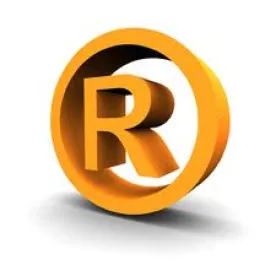On Monday, March 4, the Supreme Court unanimously decided that a copyright claimant may only bring a suit for copyright infringement after the copyright has been registered by the Copyright Office, not while the registration is pending.
The case that prompted the Court’s decision is Fourth Estate Public Benefit Corp. v. Wall-Street.com, LLC. Fourth Estate sued Wall-Street.com for copyright infringement for failing to remove Fourth Estate’s articles from its website as agreed upon when canceling the license agreement. Fourth Estate, however, did not have a registered copyright; rather Fourth Estate applied for a copyright but the application was still pending before the United States Copyright Office.
In an opinion delivered by Justice Ginsburg, the Court clarified when registration of a copyright occurs, in accordance with 17 U. S. C. §411(a) of the Copyright Act. Section 411(a) states that “no civil action for infringement of the copyright in any United States work shall be instituted until . . . registration of the copyright claim has been made in accordance with this title.” The Court considered whether “registration . . . has been made” either “as soon as the claimant delivers the application, copies of work, and fee to the Copyright Office” or “after the Copyright Office reviews and registers the copyright.”
The key takeaways from this decision are as follows:
- The Court clarified that “registration . . . has been made” within the meaning of 17 U. S. C. §411(a) means when the Register of Copyrights has registered a copyright after examining a properly filed application, not when an application for registration is filed.
- Once registration has occurred, a copyright owner may recover for any infringement that occurred prior, and of course, after the registration.
The Court’s decision does not bar a copyright claimant from recovering for infringements that took place prior to the registration of the copyright. After all, the Copyright Act “safeguards copyright owners, irrespective of registration, by vesting them with exclusive rights upon creation of their works and prohibiting infringement from that point forward.” Therefore, if an infringement occurs before the copyright owner obtains registration from the Copyright Office, the owner’s claim will be recoverable but only after the copyright is registered.
- In limited circumstances, copyright owners may file an infringement suit before undertaking registration.
This exception applies only to works that are particularly vulnerable and susceptible to predistribution infringement, such as movie or musical compositions and live broadcasts. This exception allows the copyright owner to initiate suit before the Copyright Office grants registration.
- Copyright owners should immediately register their copyrights upon creation of the work due to the delays in the Copyright Office.
The copyright registration process now takes about seven months, compared to the 1950s when the process only took weeks. The Court noted that delays in copyright registration are attributable to the Copyright Office and can be cured not by the courts but by Congress. In the absence of congressional intervention, the onus is now on the Copyright Office to speed up the processing time for copyright registration applications.



 />i
/>i

